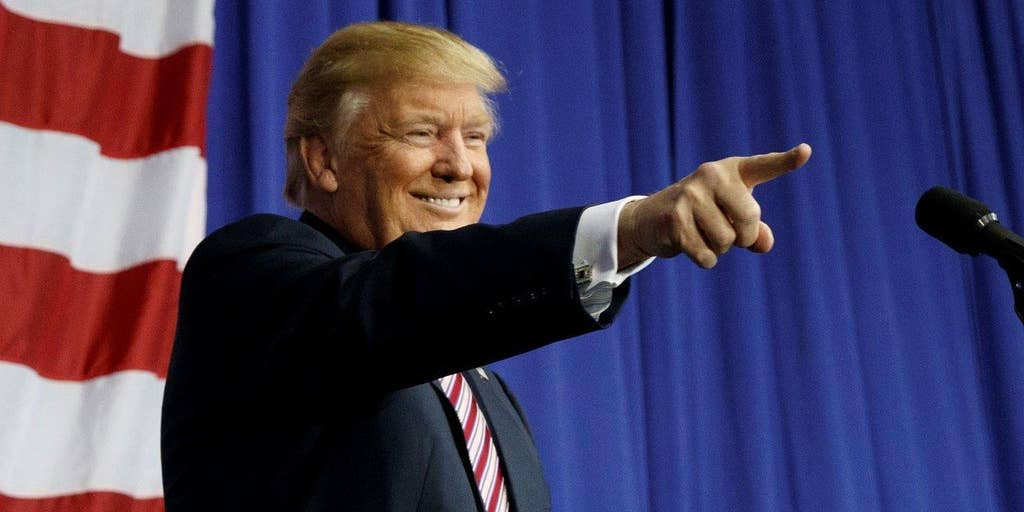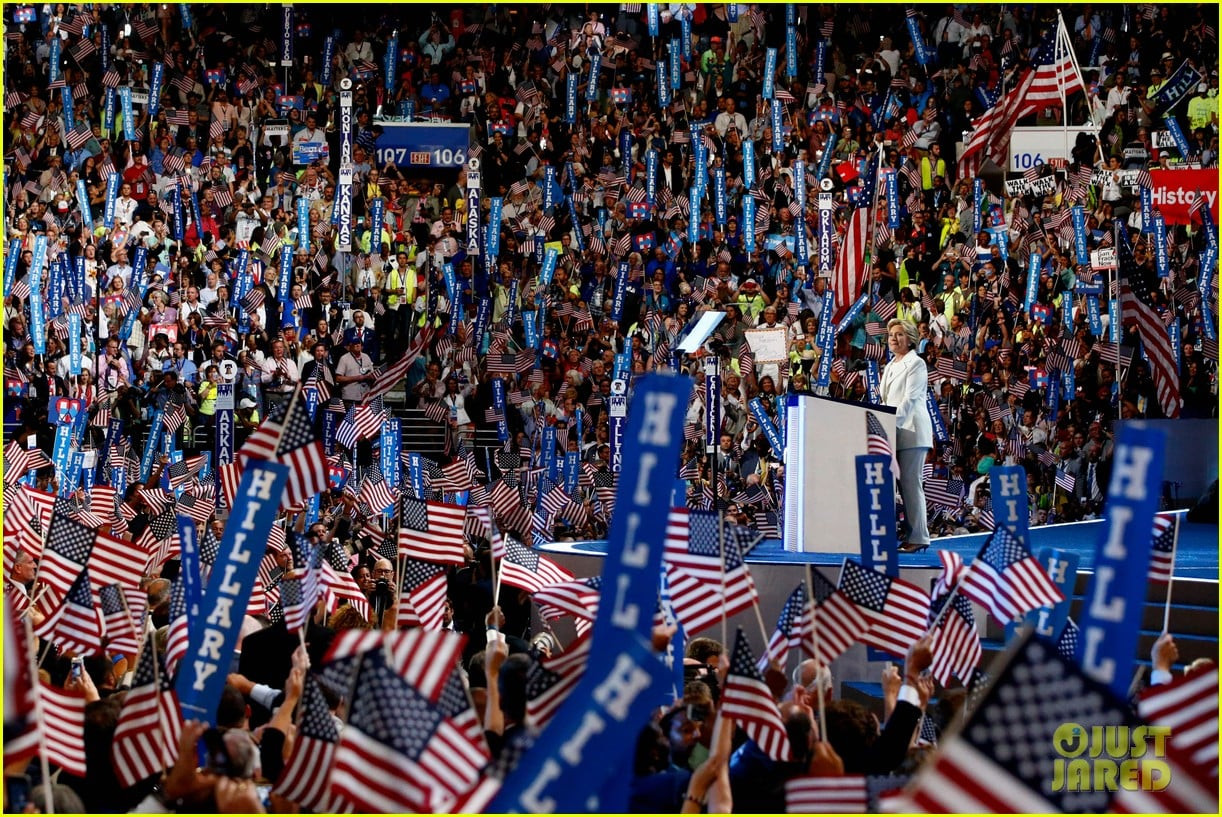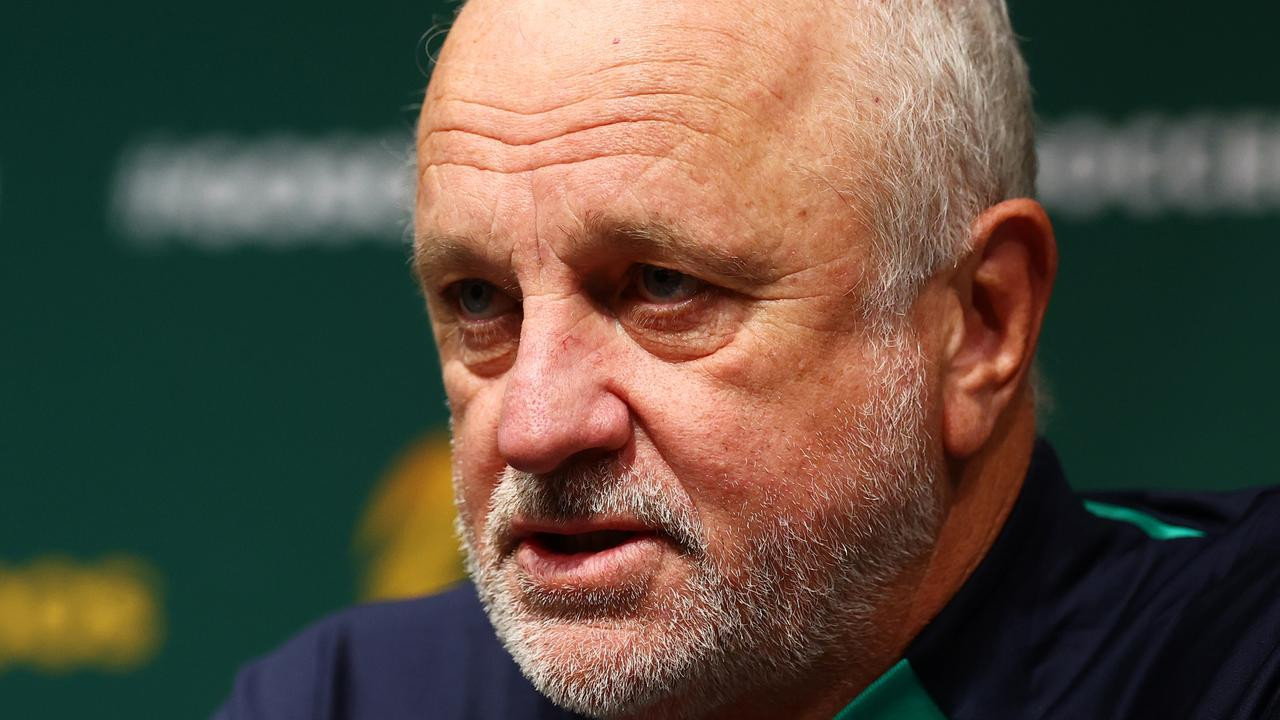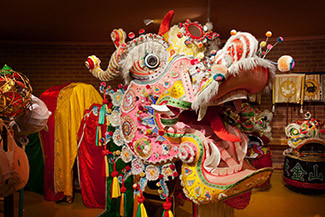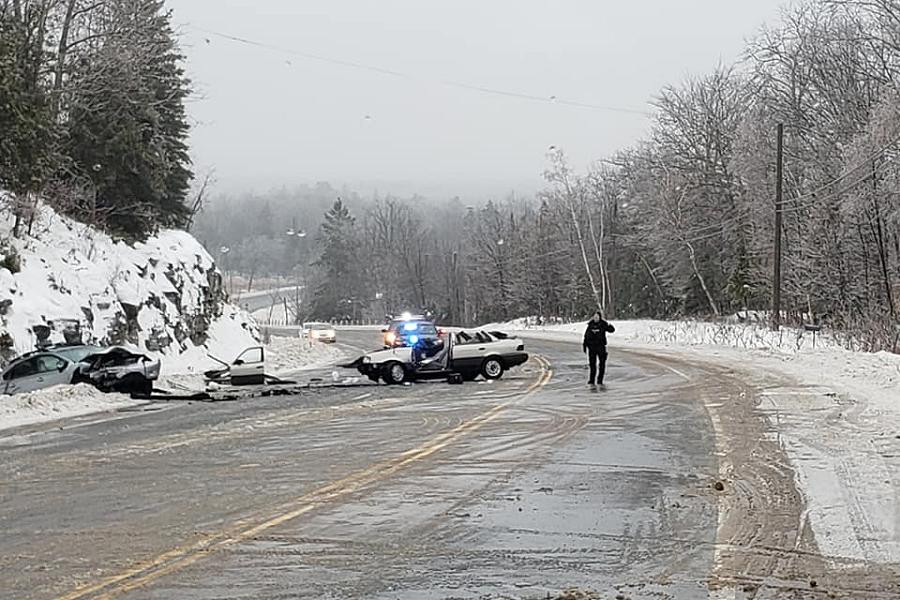Hard as it may be to believe, there aren’t a lot of Hollywood agents clamoring for their star clients to take the role of one of the polarizing political figures of the 21st century. Sebastian Stan, though, was committed to “The Apprentice.” More than anything, he believed in its director, the Iranian Danish filmmaker Ali Abbasi. And, even though it made him nervous — or maybe because it made it him nervous — he wanted to do it. He wanted to play Donald Trump.
“There wasn’t a lot of competition,” Stan says, chuckling.
“It was one of those things I thought: If this isn’t going to happen, it’s not going to happen because of me,” Stan says. “It’s not going to not happen because I’m scared.”
By a landslide, “The Apprentice” is the most controversial movie of the fall. It stars Stan as a young Trump playing apprentice to the attorney Roy Cohn ( Jeremy Strong ) while trying to make a name for himself in 1980s New York real estate. Already, “The Apprentice” has had one of the most tortured paths to movie theaters of any 2024 release.
After its debut at the Cannes Film Festival, all the major studios and top specialty labels passed on making an offer. One potential issue was a cease and desist letter from Trump’s legal team. Another was that one of the movie’s investors — Dan Snyder, the former owner of the Washington Commanders and a Trump supporter — wanted to exit the movie.
Only last week, Briarcliff Entertainment announced that it will open “The Apprentice” on Oct. 11, just weeks before Election Day. And it’s still fighting for more screens. On Tuesday, the filmmakers took the unusual step of launching a Kickstarter crowdsourcing campaign to raise money for its release.
“This project has been pretty crazy, from beginning to the end,” Abbasi says. “It’s still not completely there. It’s going to get more crazy, maybe.”
Trump’s reelection campaign has vigorously opposed the movie. After its Cannes debut, Trump campaign spokesperson Steven Cheung called the film “pure fiction.” On Friday, after its release date was confirmed, Cheung declared it “election interference by Hollywood elites.”
What role, if any, “The Apprentice” might play in the lead-up to Nov. 5 will be one of the most notable storylines at the movies this fall. While many Hollywood stars are vocal supporters of Democratic nominee Kamala Harris, it’s far rarer that plainly political films squeak through today’s sequel- and superhero-dominated movie industry. That makes for a unique election-year test case: Will liberals want to see a film about Trump? Will conservatives turn out for a film Trump opposes?
Abbasi, whose previous film “Holy Spider” turned a questioning eye on Iranian society through the story of a serial killer targeting women, says he’s not trying to tell anyone how to vote.
“Do I want to show you some stuff about character? Yes, I would very much love that and I think we have some great stuff to show,” says Abbasi. “What you do with that knowledge is up to you. But that knowledge might come in handy if you want to go and vote.”
To Abbasi, grappling with contemporary politics is his responsibility as a filmmaker. As ubiquitous as Trump is, Abbasi argues there have been paltry attempts to really understand the former president.
“With Donald and Ivana, they’ve never really been treated as human beings,” Abbasi says. “They’re either treated badly or extremely good — it’s like this mythological thing. The only way if you want to break that myth is to deconstruct it. I think a humanistic view is the best way you can deconstruct that myth.”
“For me, the best comp for him is Barry Lyndon,” Abbasi adds, referencing the Stanley Kubrick film of the same name. “When you think about Barry Lyndon, you don’t think about that guy as being a bad guy or a good guy. He has this ambivalence and this uncanny ability to navigate. He wants to be somebody. He doesn’t really know what or why. He just sort of wants to ascend.”
“The Apprentice” found a mixed reception from critics at Cannes, though Stan and Strong were widely praised. The movie notably includes a scene in which Trump, as played by Stan, rapes Ivana (played by Maria Bakalova). In Ivana Trump’s 1990 divorce deposition, she stated that Trump raped her. Trump denied the allegation and Ivana Trump later said she didn’t mean it literally, but rather that she had felt violated.
But, Abbasi maintains, “The Apprentice” is not a hit job. He has insisted that Trump, himself, might like the movie. At the same time, some critics have questioned whether “The Apprentice” shows too much empathy to Trump and Cohn, who was Sen. Joseph McCarthy’s chief counsel during the 1954 communist hearings.
“I don’t think any of us are above it. I don’t think any of us are born perfect people or we’re not morally compromised,” says Stan. “It’s really, really much muddier and trickier than that, life is. I think the only way we can learn is through empathy. I think we have to protect empathy and continue to nourish it. And I think one way of nourishing empathy is showing what its exact opposite can be.”
Stan, who plays Bucky Barnes (the Winter Soldier) in Marvel movies, was drawn to the film partly because the Copenhagen-based Abbasi brought a European perspective. It’s something that Stan, who was born in Romania and emigrated to the New York area with his mother at age 12, partly shares. He views the film as an origin story for a “win at all costs” ideology.
Strong is much more renowned for staying in character. (Abbasi recalls sometimes being confused by Strong’s demeanor on set before he realized he was still Roy Cohn.) But Stan also, unwittingly, dabbled in such immersion. He points to his diet, including one scene in which he repeatedly ate cheeseballs.
“I must have had, like, 25 to 30 cheeseballs that night,” Stan says. “The next morning I woke up and, I’m sorry to say, but I was on the toilet at 6:30 in the morning before I was getting picked up. And I was in such pain. I couldn’t leave that toilet. It was like: Yeah, I guess this is method acting.”
When the fate of “The Apprentice” seemed uncertain, Abbasi was in disbelief. He felt he had made an edgy film, but an entertaining one.
“I always thought of the United States, yes, it’s not a perfect place. But one thing was always repeated to me: This is the land of the free. This is the land of freedom of speech. You can say what you want here,” says Abbasi. “That’s not what I’ve been met with. I’ve been met with sheer business calculations.”
Strong echoes those sentiments.
“It was almost effectively banned, and I find that, alone, very frightening and a harbinger of dark things,” says Strong. “But first and foremost it’s a movie. It’s not a political act or a political event. It’s a movie.”
All three of them, ultimately, just want people to see “The Apprentice” — if possible, with an open mind.
“We’re in a very black-and-white mentality right now, and I went into this movie knowing that,” Stan says. “But let’s take the road less traveled, and maybe other people will, too. I think we have to look at public figures that are consequential in our times, in our lives and we have to reflect and evaluate them.”
On Tuesday, Briarcliff Entertainment shared a scene from the Ali Abbasi-directed biopic, which was met earlier this year by the threat of legal action from Trump's presidential campaign.
In the clip, "Succession" star Jeremy Strong plays Trump's infamous mentor – the late U.S. prosecutor Roy Cohn, who was disbarred right before his death at 59 in 1986 – who coaches the young businessman as he takes a phone interview with a reporter while the two men ride in the back of a car.
"I intend to acquire the Commodore, and I'm planning on making it the best and the finest building in the city, maybe the country — in the world, Judy, in the world," Stan says as Strong wordlessly encourages him to talk up his business deal more.
"It's going to be the finest building in the world. It's going to be a spectacular hotel, absolutely spectacular, first-class," Stan continues.
"Listen, it's your life. You've got a ways to go, but you're learning," Strong says after promising the reporter to continue the interview in person.
The movie, which stars Maria Bakalova as Trump's first wife Ivana Trump, releases Oct. 11. It premiered internationally at the Cannes Film Festival in May before securing a North American premiere at Telluride Film Festival this past weekend and sports a 73% "fresh" rating based on 49 reviews accumulated by Rotten Tomatoes.
The film also launched a "Release The Apprentice" Kickstarter fundraiser, which is seeking $100,000 to support the movie's legal and campaign fees as well as promotional costs.
"The obstacles we have faced releasing this movie are well documented. Our distribution was blocked. We were hit with a cease and desist from Trump's lawyers. Major media companies were afraid to show you this movie," the fundraiser's description reads, in part. "Releasing this movie has become a DAVID and GOLIATH struggle, but with your support, you can help #ReleaseTheApprentice."
"The Apprentice" is described as "a candid portrayal of Donald Trump's rise to power" in the 1970s and '80s that "provides an unfiltered look at Trump's complicated and often unseemly journey."
"These legal threats have caused major media companies to shy away from distributing the film, fearing potential retribution if Trump is re-elected," the film's promoters state. "Despite this, the filmmakers are pursuing a grassroots, independent approach to distribution."
Following the Cannes premiere, a Trump campaign spokesman declared their intention to sue the filmmakers in a statement issued to multiple outlets.
"We will be filing a lawsuit to address the blatantly false assertions from these pretend filmmakers," Steven Cheung, a spokesperson for Trump's 2024 presidential campaign, told Variety and Deadline. "This garbage is pure fiction which sensationalizes lies that have been long debunked."
Cheung added that the movie is "pure malicious defamation" and "should not see the light of day."
Ivana Trump once accused Donald Trump of rape during a divorce deposition but later walked her comments back.
According to The Daily Beast, she said in a statement included in the 1993 book "Lost Tycoon: The Many Lives of Donald J. Trump" that in 1989, "Mr. Trump and I had marital relations in which he behaved very differently toward me than he had during our marriage. As a woman, I felt violated, as the love and tenderness, which he normally exhibited towards me, was absent. I referred to this as a 'rape,' but I do not want my words to be interpreted in a literal or criminal sense."
"Everybody talks about (Trump) suing a lot of people," director Ali Abbasi said in response to the Trump campaign's legal threat. "They don't talk about his success rate, though."
Abbasi went on to say he understands why the former president might assume the movie is "demeaning" and a "conspiracy" but that he should watch it for himself.
It is hardly unusual for a director introducing their movie at a film festival to express some anxiety. But as he spoke to the crowd before a packed late-night Telluride screening of his controversial Donald Trump biopic “The Apprentice” on Saturday, director Ali Abbasi felt himself sweating with his own unique brand of jitters.
The screening, which had been kept under tight wraps heading into the festival, would be the first time a U.S. audience got a look at the film that ignited a firestorm at the Cannes Film Festival in May, where “The Apprentice” earned an 11-minute standing ovation even as it drew threats of lawsuits from the Trump campaign.
“I don’t get nervous often but I am actually nervous,” the Iranian-born Abbasi (“Holy Spider”) told the Telluride crowd. “This [film] has been some years in the making, and now it’s coming back home to you guys.”
“The Apprentice” charts Trump’s rise to fame and power in the New York of the 1970s and ’80s, with Sebastian Stan portraying the real estate developer and future reality TV star and politician alongside Jeremy Strong as his ruthless attorney and mentor Roy Cohn. Scripted by journalist Gabriel Sherman, who wrote a 2014 bestseller about late Fox News chief Roger Ailes, the darkly comic film presents Trump as a sleazy and callous, if charismatic, social climber who learns the art of achieving power through aggressive attacks, ethical disregard and the strategic manipulation of the media under the tutelage of the amoral and deeply flawed Cohn.
After the film’s unveiling at Cannes, Trump campaign communications director Steven Cheung blasted it as “garbage” and “pure fiction” and vowed to file a lawsuit against the filmmakers in an effort to derail its release. Studios, streamers and indie distributors were understandably wary of picking up such a political hot potato. But ultimately Briarcliff Entertainment stepped in to distribute the film domestically, scheduling its release less than a month before a presidential election that has already been among the most tumultuous and fiercely contested in U.S. history.
Ali, when you introduced the movie last night, you said, “This is not a political hit piece. This is a mirror and it is intended to show you an image of yourselves as a community.” Can you elaborate on that?
Abbasi: This not a political hit piece. It’s in the nature of politics that you sort of streamline things to get a certain effect, in order to gain power or regain power. And that is really not the project here. We are all interested in exploring the complexities.
People ask, “Why are we going to watch this movie? What are you going to tell us that we don’t already know about Trump?” If you think you can get to know a character by reading a Wikipedia page, be my guest. But this is not information. This is an experience and it’s an experience of the complexity of these characters. Also, for me as an outsider, this was my chance to look at the American system and the utter corruption that has been an institutionalized part of it, at least from my perspective.
Strong: Of course, political machinations are part of what the film explores and examines. But really it’s a psychological investigation and, I think, a humanistic interrogation of these people.
Every great movie is about a relationship, I think, and this movie is about this relationship and the sort of formative aspects of it. Emerson said every institution is the shadow of a man. And I feel like this is looking at the very long shadow of this man [Cohn] refracted through that man [Trump]. It’s looking at that shadow that is casting its dark light on us now.
Ali makes these sort of phantasmagoric horror films, in a way. This is a monster movie. It’s a Frankenstein movie. It’s sort of the origin story of the birth of a mindset. With the combination of Gabe’s journalistic veracity and Ali’s Lynchian punk-rock filmmaking, we ended with something that is not “one plus one equals two.” All the politics aside, that’s the thing I feel excited for people to see.
The Trump in this film is very different from the one we see today. He’s younger and more vulnerable and still figuring out how he’s going to project himself onto the world. Sebastian, how did you find your way into him?
Stan: When I first read the script in 2019, it reminded me of “The Godfather Part II,” weirdly. I got this feeling that if I just forgot the character names and just looked at what was on the page — which is what ultimately you had to do — it felt like I was witnessing the solidifying of a person into stone. It reminded me of Michael Corleone’s arc in a lot of ways. Once you removed your subjective judgment of the thing, then you could see it in different ways.
Strong: As a fellow actor, I thought what Sebastian did is just a remarkable achievement. I didn’t ever see the stitching. It was just completely lived-in. I got to know a very different Donald until a certain point in the script where there were intimations of the person we know today, sort of Darth Vader. And when I met that Trump, that’s when I really understood the arc of what he was doing.
Sherman: For me, when I sat down to write the film, one of the things I really wanted to explore is, how do we humanize him? He’s this larger-than-life figure that lives in our imaginations but he’s also just a human being. I love the scene where Roy calls Donald and he’s asleep on the couch. There’s no superpower there — he’s just a guy who passed out on his couch. To normalize him as much as possible, I think, is something that is so rarely done with his character.
The Trump camp is alleging not only that the film is defamatory but that its release constitutes a form of election interference. Was the hope always that it would come out before the election?
Abbasi: I think it’s actually quite important to talk about the timing. I mean, I’m happy about the timing — it’s exciting, obviously. But we tried to make this movie since 2018 and every year it was like, “We’re almost there.” When Jan. 6th happened, we had some of the financing and everything, and then everyone was like, “No, thank you. Bye-bye.”
Sherman: I had a very prominent Hollywood executive come up to me at an event, I think in 2019, and said something like, “When Trump loses, call us. We’ll be interested.” We didn’t plan to have this out in a political sense. It was just a battle to get it made.
The film includes a scene in which Trump rapes his wife Ivana on the floor of their apartment, along with other scenes showing him getting liposuction and cosmetic surgery for his baldness. Why was it important to include those particular moments and how did you decide where to draw the line between what was fair game and what was too salacious?
Sherman: To me, the Ivana scene was a touchstone of the film because we are asking the audience to spend time with this character and we have to show all sides of him. We would be failing ourselves — I’d be failing myself as a writer and journalist — if we didn’t include that. He has been credibly accused of sexual assault by more than a dozen women. He was found liable by a New York jury of committing sexual assault and defamation against E. Jean Carroll. This is an aspect of his character and it would be just a glaring omission if it was not in there, especially in this [post-#MeToo] climate.
Ivana made those allegations in a divorce deposition under the threat of perjury, under oath, and whenever she amended her statements, it was always because Trump’s lawyers were pressuring her before a book came out, or while he was running for president in 2016. So if you’re trying to assess the truth of something, if she says one thing and then later walks it back because his lawyers are threatening her, what seems more true to you? To me, her first statement feels more true. That is why we felt that was the most honest way to show the scene.
Given the stakes of the election, and knowing the ethos Trump learned from Cohn of “attack, attack, attack,” how are you preparing yourselves for what might come from him and his supporters when this movie opens?
Strong: I feel like the stakes with this are much bigger than whatever our individual stakes might be. Our role as artists is always to hold a mirror up to nature, and that might come with some risk. This is not the type of film that is getting made, for the most part. But I do feel like, in this age of alternative facts and fantasy, it’s more important than ever that art speaks the truth and interrogates that without fear. Neither of us are interested in judging or demonizing or vilifying these people. We attempted to understand them. Which would behoove all of us right now.
Stan: I think people that support and admire him will certainly see what they want to see in this movie. But we’ve been taking one day at a time, and it feels pretty nice to enjoy this day in this moment. We live in an uncertain time. I mean, look at the very different weekends we experienced where you went from an assassination attempt to a president stepping down. So who holds the answer? I don’t know.
Abbasi: When we did “Holy Spider,” I went through a version of this. Very much like the Trump campaign not watching this movie and coming with all these [attacks and threats], in Iran they watched the teaser of “Holy Spider” and were like, “This is blasphemy. This guy should be executed for it.” I don’t know how much was really meant but you never know. My parents still live in Iran and my mom was calling me and crying and begging me to take some things out of the movie for their safety. I was like, we’re riding on the back of the dragon. There’s no way to control the dragon. So let’s enjoy the ride at least as much as we can.
I don’t have this feeling like we have done something really dangerous and terrible and now we need to extend our security and hire two people with guns [for protection]. There’s a complexity there. The experience of the film and the performances are superlative to the political messaging or whatever. I ultimately think people will see it that way.
You know how “Barbie” worked, right? They said, “If you love Barbie, it’s a movie for you. If you hate Barbie, it’s a movie for you.” So we say the same thing. If you love Trump, it’s a movie for you. If you hate Trump, it’s also a movie for you.




